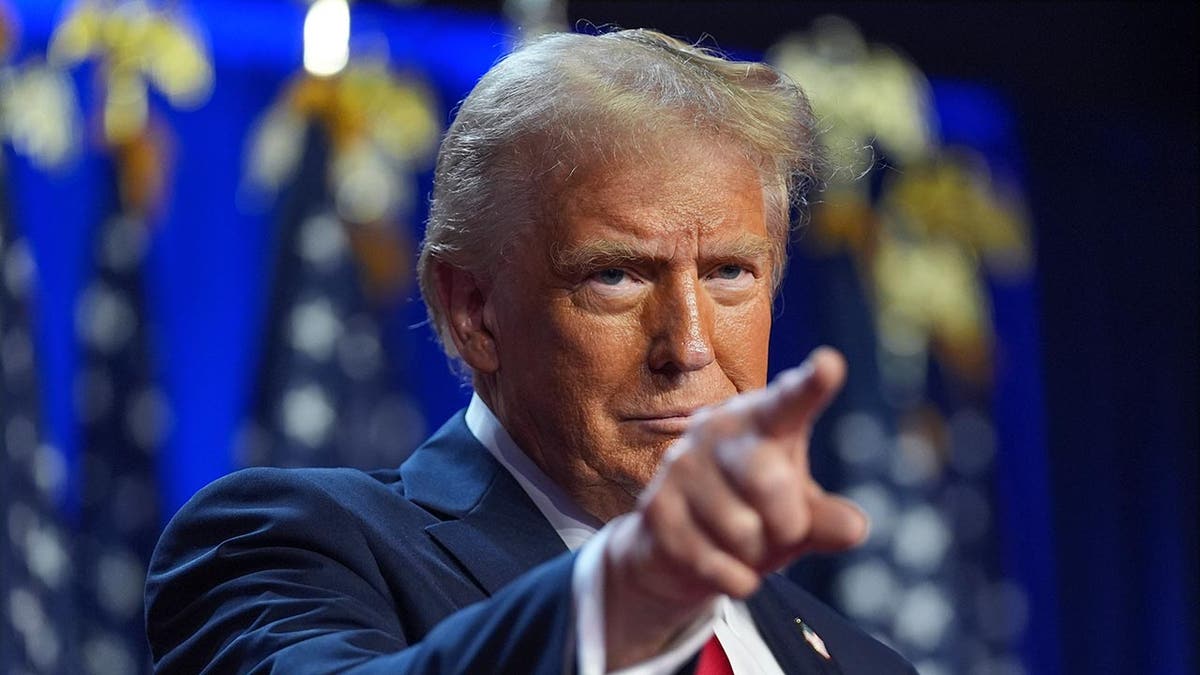In an astonishing turn of events, the political landscape of the United States witnessed what many are calling “the greatest political comeback in American history.” Former President Donald Trump’s victory in reclaiming the White House has stirred conversations across the nation and beyond, marking a singular moment in the annals of American politics.
Donald Trump’s triumphant return to the pinnacle of American leadership defies numerous predictions that cast doubt on his potential for reclaiming the Oval Office. After a period out of power, Trump galvanized a substantial portion of the American electorate, proving that his influence within the Republican Party and among American voters remains potent and formidable.
The 2024 election cycle unfolded against a backdrop of fervent political discord, where debates over economic policies, immigration, and healthcare dominated national discourse. Trump’s campaign capitalized on these issues, promising to take on challenges in a way that, he claimed, others had not. His message resonated with millions who felt disenfranchised or overlooked by the current establishment.
Underpinning Trump’s victory was a well-orchestrated campaign strategy. Trump’s team focused on regions where shifting demographic dynamics and economic woes informed voter sentiment. Targeting states critical to the electoral college, they managed to mobilize a diverse coalition of supporters. This approach mirrored Trump’s great success in 2016, but it also reflected lessons learned from his 2020 defeat.
Furthermore, his campaign made effective use of social media platforms, alternative media channels, and public rallies to spread his message wide and far. Trump’s ability to command airtime and capture headlines worked to his advantage, as it kept him at the center of political discourse even while out of office. These communications strategies underscored his skill in reshaping public debate to his benefit.
In the wake of his victory, Trump addressed his supporters with a message of unity and transformation, stating, “This is not just my victory; it is a victory for every American who believes in the values that make this nation great. Together, we will restore our standing and renew our commitment to the American dream.”
Despite his success, Trump’s return to office has not been without controversy or criticism. Opponents express concerns over his leadership style and policy proposals, pointing to past controversies that have been a hallmark of his political career. Critics argue that his presidency could further polarize an already divided nation and exacerbate ongoing cultural and political tensions.
Nevertheless, his supporters argue that Trump’s presidency promises bold action and vital change. They view his return as a testament to his resilience and ability to connect with the American spirit. For many, his presidency symbolizes a return to their favored political values and a significant shift from the policies of his predecessor.
Internationally, Trump’s resurgence has prompted discussions about the global implications of his administration. Allies and adversaries alike are recalibrating their strategies and expectations regarding U.S. foreign policy. Some nations anticipate a reinvigorated focus on bilateral trade deals and disputes, while others brace for shifts in defense and diplomatic priorities.
Additionally, economic markets around the world have responded to Trump’s return with mixed sentiments. Investors are keenly observing potential changes in policy that could impact global trade and economic growth. While some anticipate tax reforms and regulatory rollbacks that might spur economic activity, others fear protectionist policies that could disrupt international commerce.
Domestically, the Biden administration’s transition back to private life has prompted reflections on its legacy and the impact it had during its tenure. While President Joe Biden enjoyed successes in the field of vaccination rollout and infrastructure development, the new administration faces the challenge of transitioning from those efforts while addressing the electorate’s demands that contributed to Trump’s victory.
Political analysts are dissecting the myriad factors that contributed to this electoral outcome. Among them are shifts in voter demographics, party loyalty changes, and reactions to policies enacted over the past years. Experts suggest that examining these components will be crucial in understanding the future trajectory of American politics.
As the nation looks to the future, the questions that accompany any presidential transition remain ever-present. How will Trump’s administration tackle the challenges that lie ahead? What policies will define his second tenure? How will this influence America’s role on the world stage?
Moreover, attention is directed towards Trump’s choices for key cabinet positions and judicial appointments, which will undoubtedly shape the political and legal landscapes of the nation. A vigilant electorate, along with political observers, will closely watch these decisions to gauge the direction of the new administration.
Trump’s return to the White House signifies more than just a political victory; it represents a pivotal moment in American history where narratives of resilience, divisiveness, hope, and apprehension converge. As history unfolds, the country stands on the precipice of a new chapter, one that holds both challenges and opportunities in shaping the United States’ future.
In this ever-evolving narrative of politics and power, Americans from all walks of life will grapple with the impact of this administration. Their voices, votes, and vigilance will continue to play a critical role in determining the course of the nation. As the new administration commences its journey, the echoes of this unprecedented political comeback will reverberate for years, molding the fabric of the American political landscape.
































